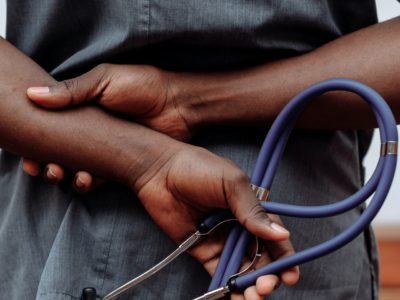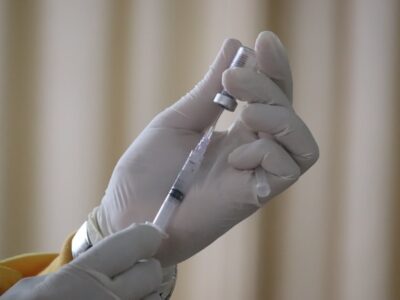Yee, a nurse on the front lines of Hong Kong’s fight against COVID-19, says she was recently turned away as a patient from the hospital where she works due to a lack beds and resources.
At home, the 25-year-old infected her father and fears her mother and brother will catch it as well. The rules state that she should be quarantined, but no one has contacted her in the last seven days to make arrangements.
She was suffering from minor symptoms, so taking time off from work at the overburdened Kwong Wah hospital was a welcome relief.
Isolation wards with 40 beds now have 60, some patients are treated in corridors, and patients admitted to general wards for non-COVID reasons were later found to be positive and infected other patients and nurses, who were also sent home.
“You keep adding beds, but not human resources,” said Yee, who declined to give her last name, fearing repercussions at work. “My colleagues are overloaded – one to dozens of patients.”
Nurses and doctors at other hospitals say the situation is similar throughout Hong Kong’s health system, demonstrating the limits of the government’s “dynamic zero-COVID” strategy as thousands of new cases are discovered every day. Since the beginning of February, daily infections have increased 70 times.
Bedridden elderly and children were left for hours in parking areas at some hospitals, waiting in the cold and rain, in scenes that shocked residents and many in the global medical community.
In a statement, Kwong Wah Hospital said it used “every feasible space” to accommodate patients, while the infected staff was sent to “appropriate” isolation facilities.
The city’s Hospital Authority said it was under tremendous strain and had implemented a new triage policy that prioritized elderly and pediatric patients in critical condition. Requests for comment were not returned by the government.
Hong Kong, like the rest of China, is determined to eliminate any outbreaks at all costs, and it is still officially targeting all infections and close contacts for mandatory testing, treatment, and isolation.
According to Yee, the goal is “impossible,” and transmission cannot even be prevented within hospitals. Authorities say, there were 837 infected medical personnel as of Tuesday.
“It may seem counterintuitive, but in a COVID pandemic the last place we want infectious people is in hospitals unless they really need treatment,” said David Owens, a founding partner of OT&P clinic.
“We are already seeing a sharp rise in illness and isolation in healthcare workers. It seems inconceivable that the health system can continue for long without a change in strategy.”
According to doctors, the majority of patients have minor symptoms.
The government has begun to adjust its hospitalization and isolation policies based on severity, but capacity remains at maximum levels, and thousands of people continue to flock to hospitals, fearful of spreading the virus to family members.
It is common for three generations of the same family to live in tiny flats in densely populated Hong Kong, and many elderly are still unvaccinated, having become complacent after living in a mostly COVID-free environment in 2020-2021.
“This is a big problem,” said David Chan, who heads the union Hospital Authority Employees Alliance, referring to people with mild or no symptoms showing up at hospitals.
“The government messaging has been that COVID is a very dangerous disease … So it is very hard to blame the people.”
The government intends to alleviate the situation by constructing new isolation facilities and converting hotel rooms into quarantine spaces.
More protective gear, as well as potentially manpower from mainland China, is also on the way.
However, many frontline health workers believe that such measures should have been implemented in advance of an outbreak rather than in response to one.
Doctors say Hong Kong could have encouraged elderly vaccination, increased quarantine capacity, and devised plans to prioritize serious cases while keeping crowds with mild symptoms away from hospitals over the last two years.
“There was no plan,” said Tony Ling, head of Hong Kong’s Public Doctors Association. “We are just unprepared.”
Doctors have “a fighting heart, but we are getting tired,” he said.
















